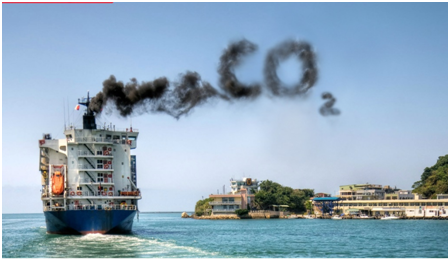
The documents, being discussed at an International Maritime Organization
(IMO) meeting now entering a second week, outline four proposals with a
combined 47 backers for imposing a fee on each tonne of greenhouse gas the
industry produces. Backers argue the
policy could raise more than $80 billion a year in funding which could be
reinvested to develop low-carbon shipping fuels and support poorer countries to
transition. Opponents, including China and Brazil, say it would penalise
trade-reliant emerging economies.
The IMO takes decisions by consensus, but can also do so by majority
support. The U.N. agency last year agreed to target a 20% emissions cut by
2030, and net zero emissions around 2050. While countries agreed in talks last
week to continue negotiations on the emissions price, an official meeting
summary noted they were “split on several issues” regarding the idea.
Albon Ishoda, IMO delegate for the low-lying Marshall Islands, said a
levy was the only credible route to meet the IMO’s goals.
“If this does not get passed, what are the alternatives? Because we’ve
already agreed to certain targets,” he said. “Are we going back to the drawing
board?”
Shipping, which transports around 90% of world trade, accounts for
nearly 3% of the world’s carbon dioxide emissions – a share expected to expand
in the coming decades without tougher anti-pollution measures.
China, Brazil and Argentina pushed back on the idea of a CO2 levy in IMO
talks last year. A study by Brazil’s University of Sao Paulo found a carbon tax on shipping would cut GDP
across developing countries by 0.13%, with Africa and South America among the
hardest-hit regions. “We will not be in favour of a flat levy likely to
hurt developing countries, but we would be in favour of a good levy only
applied to the emissions over a certain benchmark,” the Brazilian negotiator
said.
Despite differences of opinion, member states are still attempting to
agree on global measures to avoid more countries targeting the industry on a
national level. That would fragment the market with varying local standards,
and cause a headache for firms shipping goods globally. The EU for one has said
it may bring more international shipping emissions into its local CO2 market if
the IMO does not agree a global emissions price by 2028.
Questions over who
would administer a charge, and how its proceeds would be reinvested, are also
still open.
The Marshall Islands’ Ishoda said he hoped disputes over the details
would not prevent a deal. “If we were
able to move a mile, we end up moving an inch, because we argue about
everything under the sun,” he said.